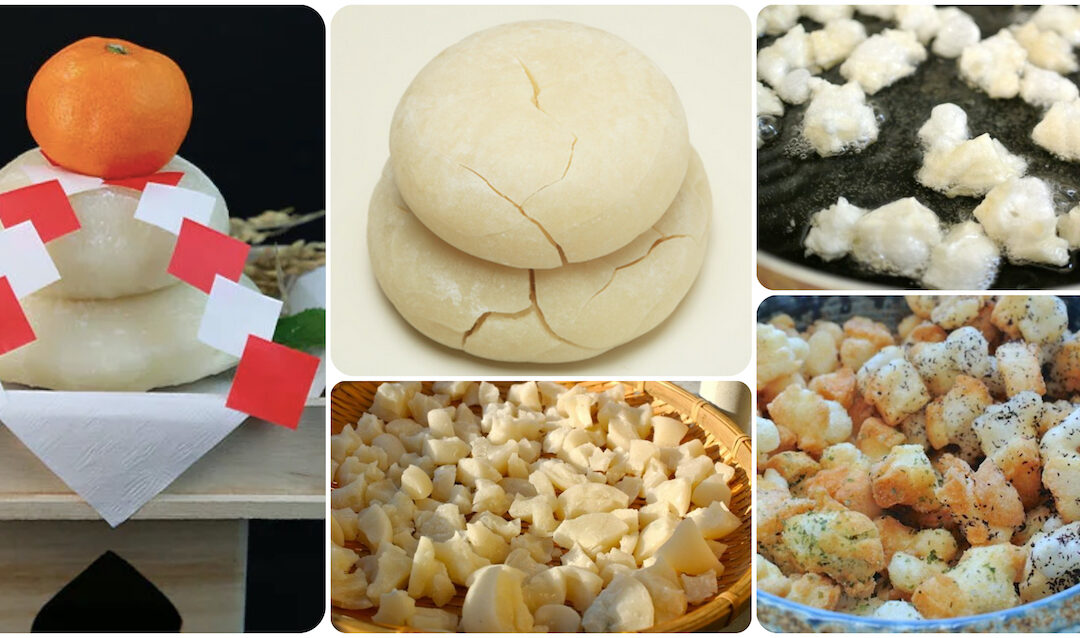
by Elizabeth Andoh | Jan 6, 2022 | Recipes, Winter
あられ・霰・ARARÉCrisp-and-Crunchy Rice Snacks When listening to the weather report araré means “hailstones” but in the kitchen (or other culinary setting) it means “small cubes” or fine-diced omochi (sticky rice) that has been fried or baked. No doubt the origin of this...
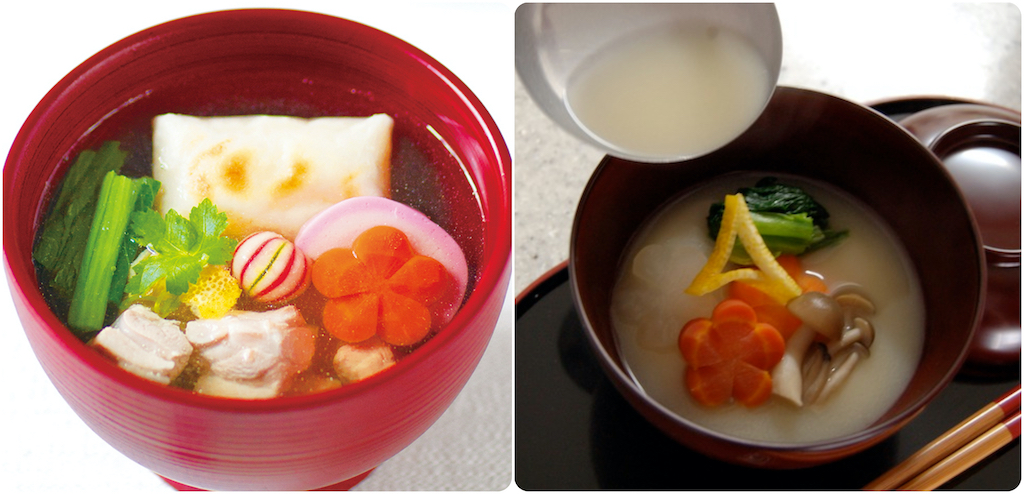
by Elizabeth Andoh | Dec 29, 2021 | Recipes, Winter
お雑煮Ozōni “Honorable Miscellany Stew” Served for brunch on Gan Jitsu (New Year’s Day), and on many chilly winter mornings thereafter, ozōni is enjoyed throughout Japan. The name of the dish is rather straightforward and descriptive: the “o” is an honorific...
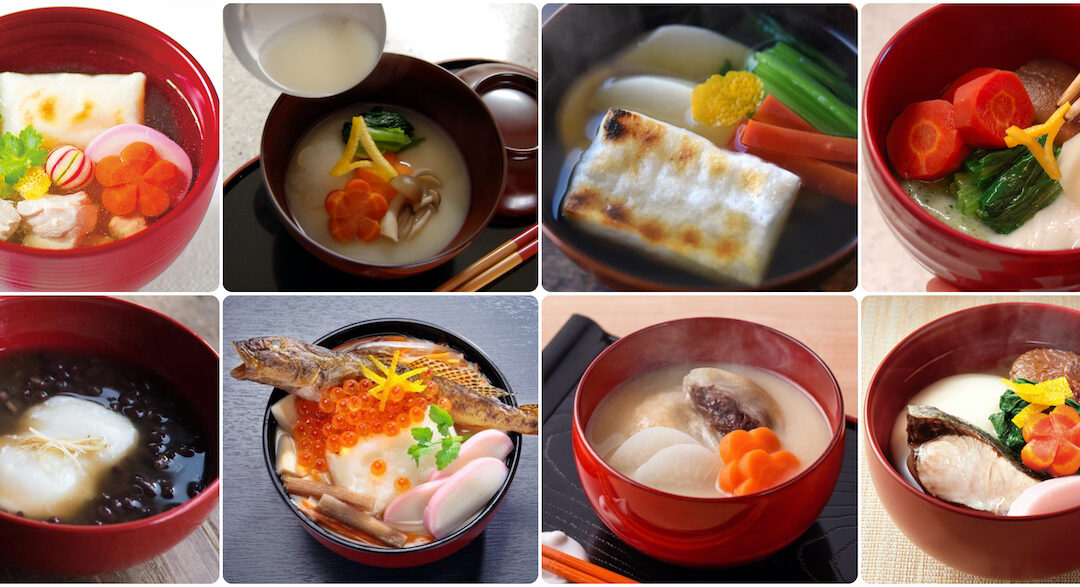
by Elizabeth Andoh | Dec 29, 2021 | Cooking Club
A sampling of REGIONAL OZŌNI Top row, from left: Kanto (Tokyo area) style, Kansai (Kyoto, Osaka) style, Kanto, KansaiBottom row, from left: Tottori with adzuki-jiru, Miyagi with whole grilled goby fish, Kagawa (Shikoku) with anko-filled mochi, Hakata with buri and...
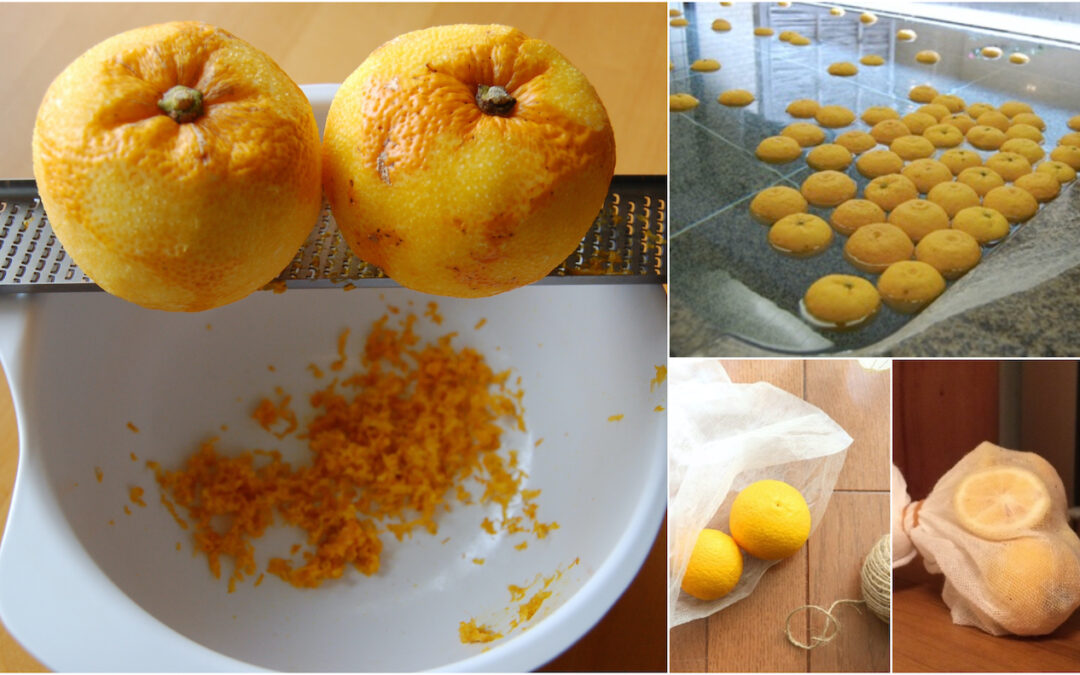
by Elizabeth Andoh | Dec 17, 2021 | Recipes, Winter
ゆず湯・Yuzu Yu Food customs in Japan often involve word-play. The winter solstice that occurs on or about December 22 is called tōji 『冬至』, literally “winter arrives.” But the word tōji can also be written as 『湯治』meaning “hot-spring cure” or...
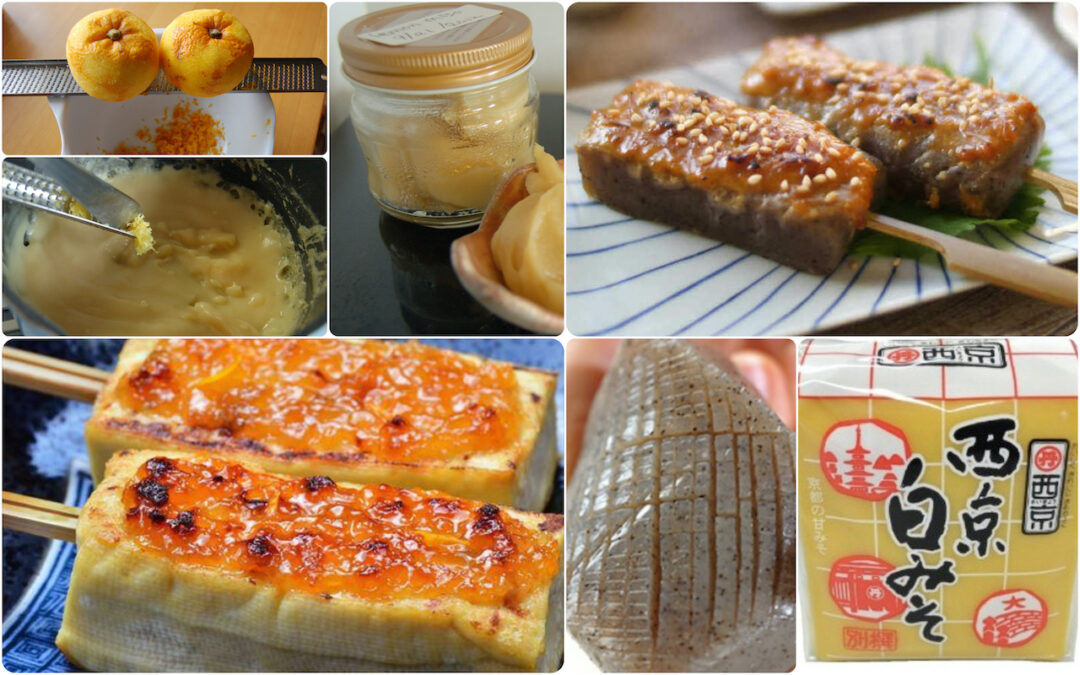
by Elizabeth Andoh | Dec 17, 2021 | Cooking Club
季節のゆず味噌・Kisetsu no Yuzu MisoSeasonal Citrusy Miso Sauce The Japanese delight in bringing elements — often fresh produce — of each season to table. Yuzu citrus fruits ripen from green to golden yellow as autumn turns to winter. As yuzu ripen, the...






